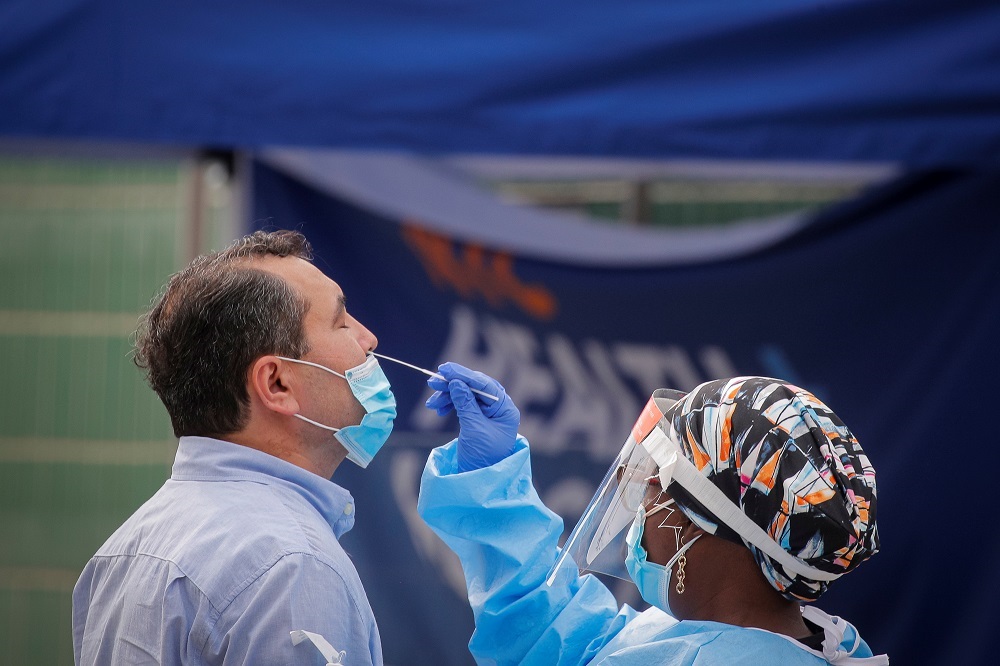
A picture of U.S. President Donald Trump is seen on a smartphone in front of displayed Tik Tok and WeChat logos in this illustration taken September 18, 2020.
WASHINGTON: The Trump administration faces ongoing court battles after two legal setbacks in its efforts to bar US app stores from offering Chinese-owned TikTok or WeChat for download.
In two separate rulings, judges have questioned the evidence that data from American users is being accessed by the Chinese government imperiling US national security that prompted the extraordinary orders by the US Commerce Department.
US District Judge Carl Nichols, who issued an order late Sunday blocking the TikTok download ban that was set for 11.59pm Sunday, questioned the government’s evidence.
“The government has provided ample evidence that China presents a significant national security threat, although the specific evidence of the threat posed by (TikTok), as well as whether the prohibitions are the only effective way to address that threat, remains less substantial,” Nichols wrote in an opinion released yesterday.
In the WeChat case, Judge Laurel Beeler in California wrote that “on this record — while the government has established that China’s activities raise significant national security concerns — it has put in scant little evidence that its effective ban of WeChat for all US users addresses those concerns.”
Beeler set a October 15 hearing on the Justice Department’s request she reconsider her ruling and allow the WeChat order to take immediate effect.
TikTok owner ByteDance and WeChat owner Tencent Holdings have denied the apps are used for spying on Americans.
Nichols, a Trump appointee, anticipated further legal filings by both the government and TikTok before a final decision on whether to block other restrictions set for November 12.
Nichols also rejected the Justice Department’s effort to invoke the Espionage Act, which authorises life imprisonment or the death penalty for those who share US defence secrets.
“It is not plausible that the films, photos, art, or even personal information US users share on TikTok fall within the plain meaning of the Espionage Act,” Nichols wrote.

